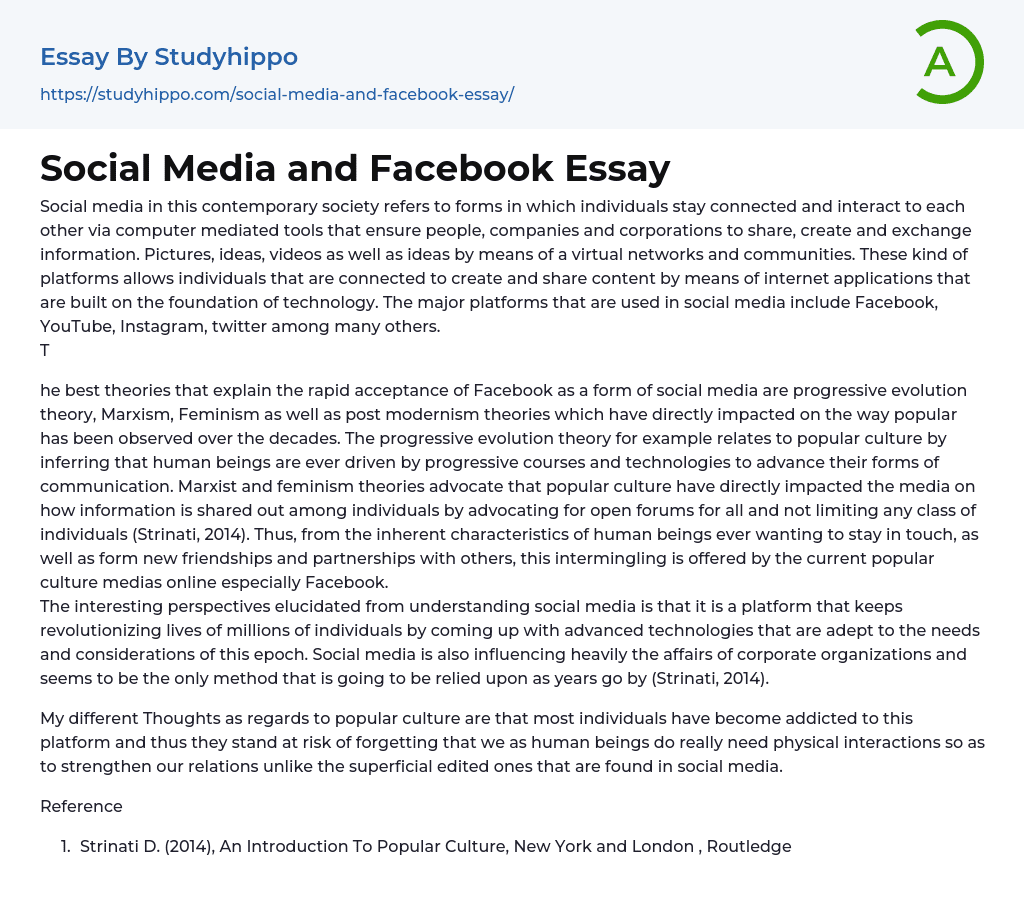Social media in today's society includes a range of platforms and tools that allow individuals, businesses, and organizations to engage, communicate, and exchange information via computer-mediated methods.
Virtual networks and communities allow for the exchange of pictures, ideas, videos, and content through internet applications that utilize technology. Social media platforms like Facebook, YouTube, Instagram, and Twitter are significant in facilitating this connectivity. The recognition of Facebook as a social media platform can be linked to theories such as progressive evolution, Marxism, Feminism, and postmodernism. These theories have shaped how popular culture is perceived over time. For instance, the progressive evolution theory suggests that technological advancements continuously push individuals to enhance their communication methods.
Marxist and feminist theories argue that popular culture
...has directly influenced the media's distribution of information by advocating for inclusivity and open communication for all individuals, without restricting any social class (Strinati, 2014). As a result, popular culture media, such as Facebook, provides a platform for people to connect, create new relationships, and engage with others. Social media continuously evolves, catering to the needs of the current era and significantly impacting both individuals and corporate organizations (Strinati, 2014). However, my personal perspective on popular culture is that many individuals have become overly reliant on these online platforms, neglecting the importance of physical interactions that strengthen genuine relationships compared to the superficial connections often found on social media.
Reference
- Strinati D. (2014), An Introduction To Popular Culture, New York and London , Routledge




